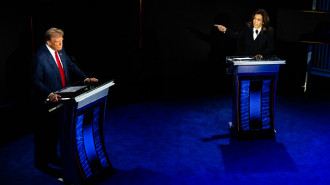Mauritania cracks down on opposition parties after disputed election
Mauritanian police raided the headquarters of two opposition parties, closing one of them amid high tension followed a disputed outcome to presidential elections, sources said Tuesday.
The operation late Monday came after police clashed with opposition supporters angered over the declared victory of ruling party candidate Mohammed Ould Ghazouani, they said.
A former general and long-time ally of outgoing president Mohammed Ould Abdel Aziz, Ghazouani was credited with 52 percent of the ballot, averting the need for a runoff vote by one percent.
"Police arrived at the headquarters of candidate Biram (Ould Dah Ould Abeid) and tossed teargas grenades inside, smashing windows and doors, making the place unusable," Abeid's spokesman, Hammada Ould Lehbouss, said on Tuesday.
They also raided the headquarters of opposition candidate Kane Hamidou Baba, the four candidates told a press conference late Monday.
His premises were closed by the authorities, opposition sources said on Tuesday.
The two buildings, located close to each other in the capital Nouakchott, were deserted early Tuesday and rocks used to form roadblocks and burned tyres were scattered outside, an AFP reporter saw. The government refused to comment.
The vote on Saturday had been touted as a historic moment in the conservative Saharan desert nation, marking its first democratic transition after decades of coups.
Ghazouani easily beat Abeid, an anti-slavery activist credited with 18.58 percent of the vote, according to results published by the CENI electoral commission.
He was followed by Sidi Mohamed Ould Boubacar, a former prime minister, with 17.87 percent, according to the official figures.
Kane polled 8.71 percent, while Mohammed Ould Moloud got 2.44 percent.
The defeated candidates say the vote count was flawed and are calling for a breakdown of the tally by individual polling stations, to see how it matches their own data.
But they have also said that their bid to overturn the result will be peaceful and legal.
The outgoing president is a general who originally came to power in a 2008 coup. He won elections a year later and was again elected in 2014 in polls boycotted by the opposition.
Ghazouani, who campaigned on the themes of continuity, solidarity and security, served as Abdel Aziz's chief of staff from 2008 to last year.
Rights groups have accused Mauritania's government of restrictions on freedom of expression and assembly, while calling on the nation to do more to counter violence against women and slavery, which persists despite its official abolition in 1981.
![Mauritania death penalty [Getty] Mauritania death penalty [Getty]](/sites/default/files/styles/large_16_9/public/media/images/611E4DB0-A569-4CFB-805D-939BF965CC17.jpg?h=d1cb525d&itok=HcBkjCZ_)
![Palestinians mourned the victims of an Israeli strike on Deir al-Balah [Getty]](/sites/default/files/styles/image_684x385/public/2024-11/GettyImages-2182362043.jpg?h=199d8c1f&itok=xSHZFbmc)


![The law could be enforced against teachers without prior notice [Getty]](/sites/default/files/styles/image_684x385/public/2178740715.jpeg?h=a5f2f23a&itok=hnqrCS4x)
 Follow the Middle East's top stories in English at The New Arab on Google News
Follow the Middle East's top stories in English at The New Arab on Google News

![Voters in Michigan [Getty]](/sites/default/files/styles/image_330x185/public/2182490468.jpeg?h=a5f2f23a&itok=XMi_sWGX)
